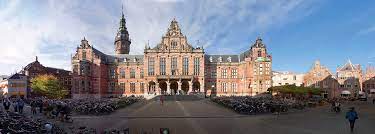University of Groningen: Strong interest in the first round of the University of the North Booster Fund
The application deadline for the first round of the University of the North Booster Fund is closed. Collaborative projects that are eligible for the Booster Fund could submit an application until the end of October. The organization received thirteen applications. An external assessment committee will consider the applications and will issue its advice. The selected applications will be announced in December.
The knowledge institutions involved want to use the Booster Fund to boost and accelerate the realization of the RIS-3 objectives and the University of the North’s goals as stated in the Knowledge Agenda. An amount of 250,000 euros has been made available to do so.
Gernant Deekens, Secretary and Administrative advisor for the University of the North: ‘We are satisfied with the interest in the Booster Fund, and especially with the diversity of submissions. It shows that knowledge institutes, governments, industry, and society are all collaborating in a variety of areas to realize the RIS-3 objectives for the North. As an organization, we are happy that we can give these collaboration projects a financial helping hand with the Booster Fund.’
The proposals will be assessed this month by an external assessment committee, made up of Marcel Beukeboom, Permanent Representative of the Netherlands to the United Nations Organizations for Food and Agriculture in Rome, Han Brezet, Emeritus Professor of the Faculty of Industrial Design Engineering at TU Delft, Aart Jan de Graaf, Leading Lector and Representative of Lectorates within the HAN University of Applied Sciences, and Evelyn Finnema, Professor of Nursing Science & Education and Chief Nursing Officer at the Ministry of Health, Welfare, and Sport. The selected applications will be announced in December.
More about the University of the North
Within the University of the North, the University of Groningen, the University Medical Center Groningen (UMCG), Hanze University of Applied Sciences, NHL Stenden University of Applied Sciences, and Van Hall Larenstein University of Applied Sciences work closely together with each other, as well as with businesses, government institutions, and community associations to help to contribute to the most important challenges for change in the Northern Netherlands. The basis for this is the Knowledge Agenda, which was launched in November last year.

